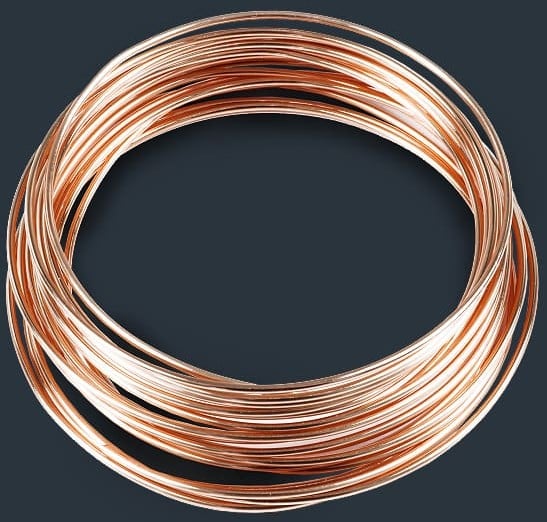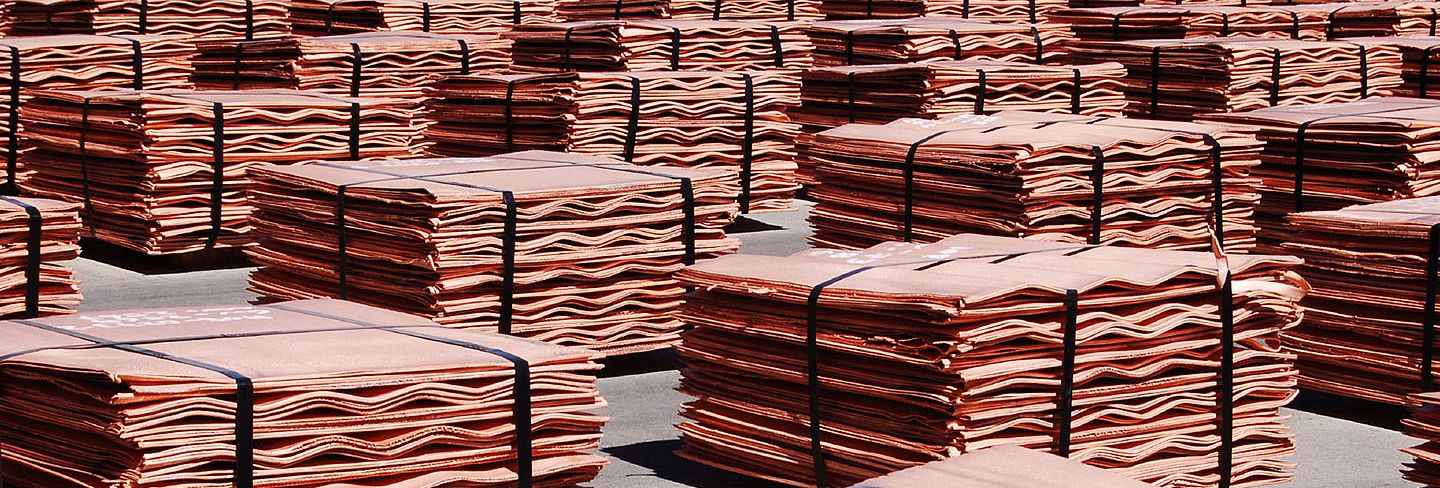The Ultimate Guide to Sustainable Coping With Eco-Friendly Copper Products
The Ultimate Guide to Sustainable Coping With Eco-Friendly Copper Products
Blog Article
Discovering the Diverse Applications of Copper Products in Modern Industries
Copper items have actually established themselves as vital elements throughout a myriad of contemporary industries, primarily as a result of their amazing conductivity, malleability, and resistance to rust. From improving the effectiveness of electric systems to playing a vital role in renewable resource technologies, the flexibility of copper appears. In addition, its recyclability placements it as a lasting selection in production and electronics. As markets significantly focus on technology and sustainability, the diverse applications of copper necessitate a closer examination, specifically concerning their possible influence on future technical advancements and ecological methods.
Electric Applications of Copper
Copper is a crucial material in the electrical market, making up approximately 60% of the total demand for non-ferrous metals worldwide - Copper Products. Its exceptional electrical conductivity, which is nearly two times that of aluminum, makes it the favored option for a wide variety of electrical applications. From electrical wiring systems in property and industrial structures to high-voltage power transmission lines, copper makes sure efficiency and reliability in power shipment
In addition to circuitry, copper is essential to the manufacturing of electrical elements such as motors, transformers, and generators. These parts take advantage of copper's thermal conductivity and pliability, crucial for warmth dissipation and reliable efficiency. Moreover, copper's resistance to rust enhances the life-span and toughness of electrical systems, making it a cost-effective remedy in the lengthy term.
The growth of eco-friendly energy resources, such as solar and wind power, has actually even more raised the demand for copper in electrical applications. As markets shift in the direction of lasting energy options, copper's duty becomes even extra vital. On the whole, the convenience and efficiency qualities of copper strengthen its condition as a foundation product within the electrical field, driving development and performance across various applications.
Plumbing and Piping Solutions
In contemporary pipes systems, the option of products considerably impacts both functionality and long life. Copper has actually emerged as a favored alternative due to its distinct residential properties, including rust resistance and antimicrobial qualities. These attributes ensure that copper piping continues to be resilient and secure for moving potable water, a critical consideration in residential and industrial applications.
Among the key advantages of copper in plumbing is its capacity to hold up against high temperature levels and pressures, making it ideal for a variety of applications, from warm water systems to heating and cooling networks. Additionally, copper's flexibility permits easier installment in intricate piping formats, decreasing the risk of failures and leakages.
Another noteworthy benefit is copper's lengthy life expectancy, often exceeding 50 years with proper maintenance. This longevity not only minimizes substitute costs however likewise adds to lasting techniques by minimizing waste. Copper's recyclability aligns with modern-day ecological criteria, promoting a circular economy within the pipes market.
Copper in Renewable Energy
The flexibility of copper expands beyond pipes applications, playing an important role in the sustainable energy market. Its superb electric and thermal conductivity makes it an important product in the production and circulation of sustainable power resources, specifically solar and wind power. In solar panels, copper is made use of in solar batteries and circuitry, helping with efficient energy conversion and transmission. Its resistance to corrosion makes certain durable performance, which is crucial for maximizing energy outcome gradually.

Moreover, as the international need for electrical lorries (EVs) increases, copper's role in battery systems and charging infrastructure ends up being much more significant. The product's capability to conduct electrical power effectively is integral to the performance of EV batteries, boosting variety and charging speed.
Copper's Duty in Electronic devices
Electronics manufacturing relies greatly on copper's extraordinary residential properties, particularly its high electric conductivity and thermal effectiveness. These characteristics make copper an excellent selection for a vast array of digital components, consisting of adapters, motherboard, and circuitry. The metal's capacity to efficiently transmit electric signals makes certain minimal energy loss, which is crucial in high-performance electronic gadgets.
Furthermore, copper's thermal conductivity plays a significant role in heat dissipation, securing delicate elements from overheating. This is specifically crucial check that in modern electronics, where portable designs bring about raised heat generation. Copper is likewise preferred for its pliability and ductility, allowing it to be quickly formed into intricate designs that satisfy the needs of sophisticated digital applications.
With the rise of consumer electronics, telecommunications, and electrical lorries, the need for copper in the electronic devices field remains to grow. As advancements in technology develop, copper continues to be indispensable to achieving higher performance and dependability in electronic products. Its recyclability further boosts its allure, as manufacturers look for sustainable services without jeopardizing high quality. Thus, copper remains a cornerstone material in the ever-expanding area of electronic devices.
Innovative Makes Use Of in Production

One noteworthy application remains in additive manufacturing, where copper-based products are used in 3D printing procedures. This enables the production of light-weight elements and complex geometries, especially in the aerospace and automotive industries. In addition, copper's thermal conductivity makes it an optimal option for warm exchangers, boosting efficiency in industrial air conditioning systems.
Moreover, the surge of clever production has actually seen the unification of copper in IoT devices, where its conductive capabilities sustain innovative sensing innovations. In the realm of renewable energy, copper is essential in the manufacturing of photovoltaic panels and wind turbines, helping with extra effective power conversion and circulation.
As sectors make every effort for sustainability and development, copper's convenience and efficiency remain to place it as a crucial material, driving improvements in manufacturing and contributing to the development of smarter, more efficient products.
Conclusion
In summary, copper items demonstrate exceptional adaptability throughout different contemporary markets. Copper Products. Their you could try here premium conductivity boosts electric applications, while deterioration resistance makes sure dependability in plumbing. The integral duty of copper in renewable resource and its necessary feature in electronics highlight its importance in progressing lasting methods. Additionally, innovative usages in manufacturing emphasize copper's versatility and withstanding significance. Jointly, these applications show copper's important payment to technological progress and commercial effectiveness in contemporary culture.
From enhancing the efficiency of electric systems to playing an essential duty in sustainable power modern technologies, the versatility of copper is obvious. As industries progressively focus on development and sustainability, the varied applications of copper warrant a closer examination, especially concerning their potential effect on future ecological practices and technological improvements.
The development of renewable power resources, such as solar and wind power, has additionally raised the demand for copper in electrical applications. Generally, the flexibility and efficiency features of copper strengthen its status as a foundation material within the electrical market, driving technology and performance throughout various applications.
The flexibility of copper prolongs past pipes applications, playing a vital role in the renewable energy industry.
Report this page